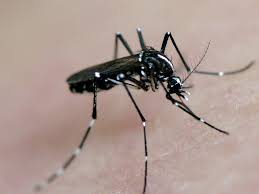
South Dakota has its first Zika virus infection, a woman who traveled to a country where Zika virus is currently transmitted and later developed symptoms, the Department of Health said today. The infection was confirmed by the Centers for Disease Control and Prevention.
“This is a good reminder for anyone who travels to Zika-affected areas that it’s important to protect themselves from mosquito bites,” said Dr. Lon Kightlinger, state epidemiologist for the department.
Zika is a tropical mosquito-borne infection. The virus is not known to be carried by the mosquitoes found in South Dakota.
For most healthy adults the infection is mild and only one in five people who are infected will become ill. Symptoms typically occur two to seven days after a bite and include fever, muscle or eye pain and a rash. However, pregnant women who are infected run the risk of delivering babies born with the birth defect microcephaly. Babies with the defect have heads smaller than expected and often have smaller brains that might not have developed properly.
Pregnant women should avoid traveling to countries with active transmission of Zika, including Miami-Dade County in Florida. Men who live in or have visited Zika transmission areas should abstain from unprotected sex. Individuals who do travel to a Zika-affected area and become ill within two weeks should see their doctor. Pregnant women who travel to Zika transmission areas should be tested two to 12 weeks after their return, whether they are sick or not.
There are no vaccines or treatment for the virus. To avoid infection travelers to Zika-affected areas, particularly pregnant women, should follow strict mosquito control precautions – wear pants and long-sleeved shirts, use an EPA-registered insect repellent and ensure that windows and doors have intact screens.
